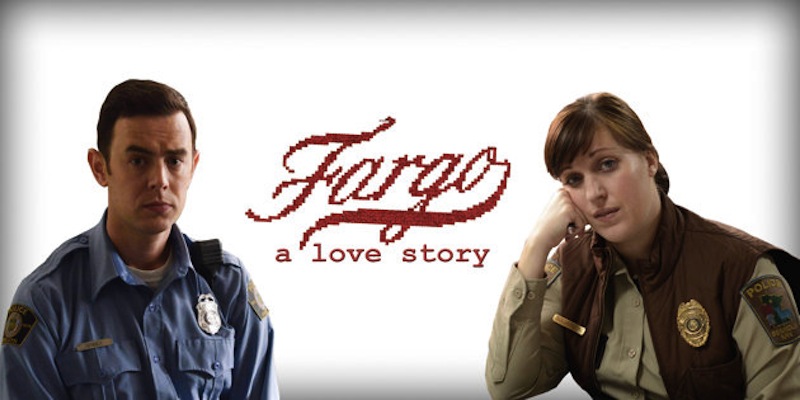The Purpose of Evil?
Ross Gale
 Colin Hanks tweeted that they re-wrote the script for the ending of Fargo, the TV show, multiple times before they gave up re-writing and just went with what they had. They weren’t satisfied, but there wasn’t anything they could do to fix their dissatisfaction. It’s the same dissatisfaction I feel when the closing credits roll. Molly, Gus, and his daughter sitting cozy on the couch. Molly will be police chief soon. Gus earned an award for bravery. Life in Bemidji continues. The bad guy, Lorne Malvo, is shot and killed by Gus — he gets what’s coming — but evil, that persistent thing, is never finally dealt with. Fargo doesn’t know what to do with evil.
Colin Hanks tweeted that they re-wrote the script for the ending of Fargo, the TV show, multiple times before they gave up re-writing and just went with what they had. They weren’t satisfied, but there wasn’t anything they could do to fix their dissatisfaction. It’s the same dissatisfaction I feel when the closing credits roll. Molly, Gus, and his daughter sitting cozy on the couch. Molly will be police chief soon. Gus earned an award for bravery. Life in Bemidji continues. The bad guy, Lorne Malvo, is shot and killed by Gus — he gets what’s coming — but evil, that persistent thing, is never finally dealt with. Fargo doesn’t know what to do with evil.
Flannery O'Connor said of her own work, "I have found that violence is strangely capable of returning my characters to reality and preparing them to accept their moment of grace.” O'Connor is specifically speaking about her story “A Good Man is Hard to Find,” where an escaped convict senselessly murders a family: mother, father, children, baby, grandma. Fargo lacks any of the grace O’Connor refers to. In Fargo, death is for the unfortunate, not for those on the verge of eternity. This is why the ending is so unsatisfying: the absence of grace. The only thing at stake is “normal” of life in Bemidji.
The moral of Fargo is about vigilance. Don’t become one of the unlucky ones. But the story of violence should propel us beyond vigilance to a confrontation with the eternal. Not for the sake of normalcy, but for the sake of souls.